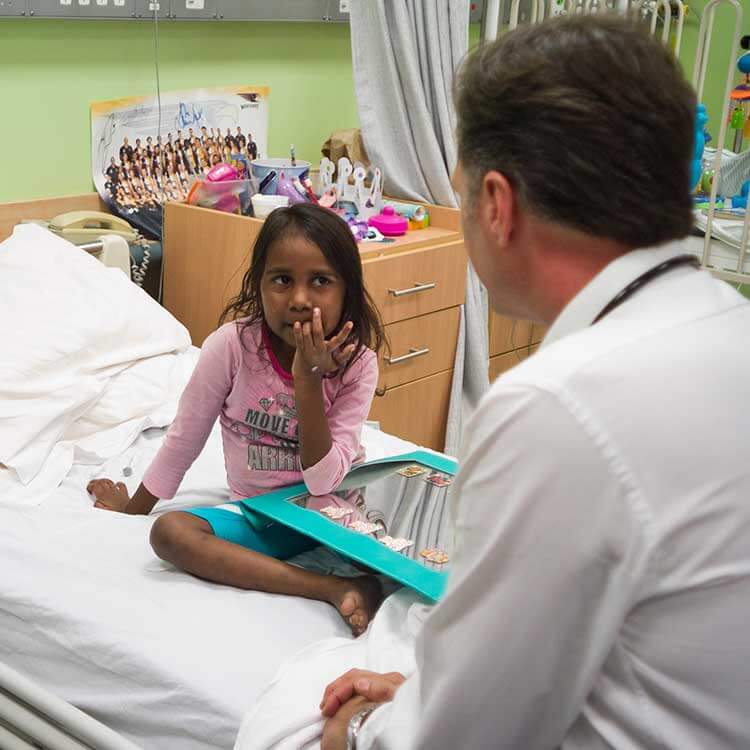Search

News & Events
Bold bid to end rheumatic heart diseaseSome of the nation’s leading medical researchers will converge on Darwin this week to step out a plan to wipe out rheumatic heart disease.
Research
Evaluation of a Community-Led Program for Primordial and Primary Prevention of Rheumatic Fever in Remote Northern AustraliaEnvironmental factors including household crowding and inadequate washing facilities underpin recurrent streptococcal infections in childhood that cause acute rheumatic fever (ARF) and subsequent rheumatic heart disease (RHD).
Research
Emerging diabetes and metabolic conditions among Aboriginal and Torres Strait Islander young peopleCollaboration between clinicians and researchers is required to establish the prevalence and disease burden of type 2 diabetes among Indigenous young people
Research
Antimicrobial stewardship in remote primary healthcare across northern AustraliaThe high burden of infectious disease and associated antimicrobial use likely contribute to the emergence of antimicrobial resistance in remote Australian Aboriginal communities. We aimed to develop and apply context-specific tools to audit antimicrobial use in the remote primary healthcare setting.
Research
A large proportion of poor birth outcomes among Aboriginal Western Australians are attributable to smoking, alcohol and substance misuse, and assaultA large proportion of adverse outcomes were attributable to the modifiable risk factors of substance use and assault
Research
Reference genotype and exome data from an Australian Aboriginal population for health-based researchThis data set provides a useful reference point for genomic studies on Aboriginal Australians
Research
Visual-motor integration, visual perception, and fine motor coordination in a population of children with high levels of Fetal Alcohol Spectrum DisorderAboriginal children living in remote Western Australia have poor visual-motor integration skills regardless of prenatal alcohol exposure or FASD
Research
Decolonising Psychology: Validating Social and Emotional WellbeingThis paper explores the meaning of these seven domains of social and emotional well-being.
Research
Development of the Aboriginal Communication Assessment After Brain Injury (ACAABI): A screening tool for identifying acquired communication disorders in Aboriginal Australians.Acquired communication disorders (ACD), following stroke and traumatic brain injury, may not be correctly identified in Aboriginal Australians
Research
Twenty-five-year survival for aboriginal and caucasian children with congenital heart defects in Western Australia, 1980 to 2010Long-term survival was lower for Aboriginal children with congenital heart defects
